Who Wants to Know?
protecting democracy in a digital world
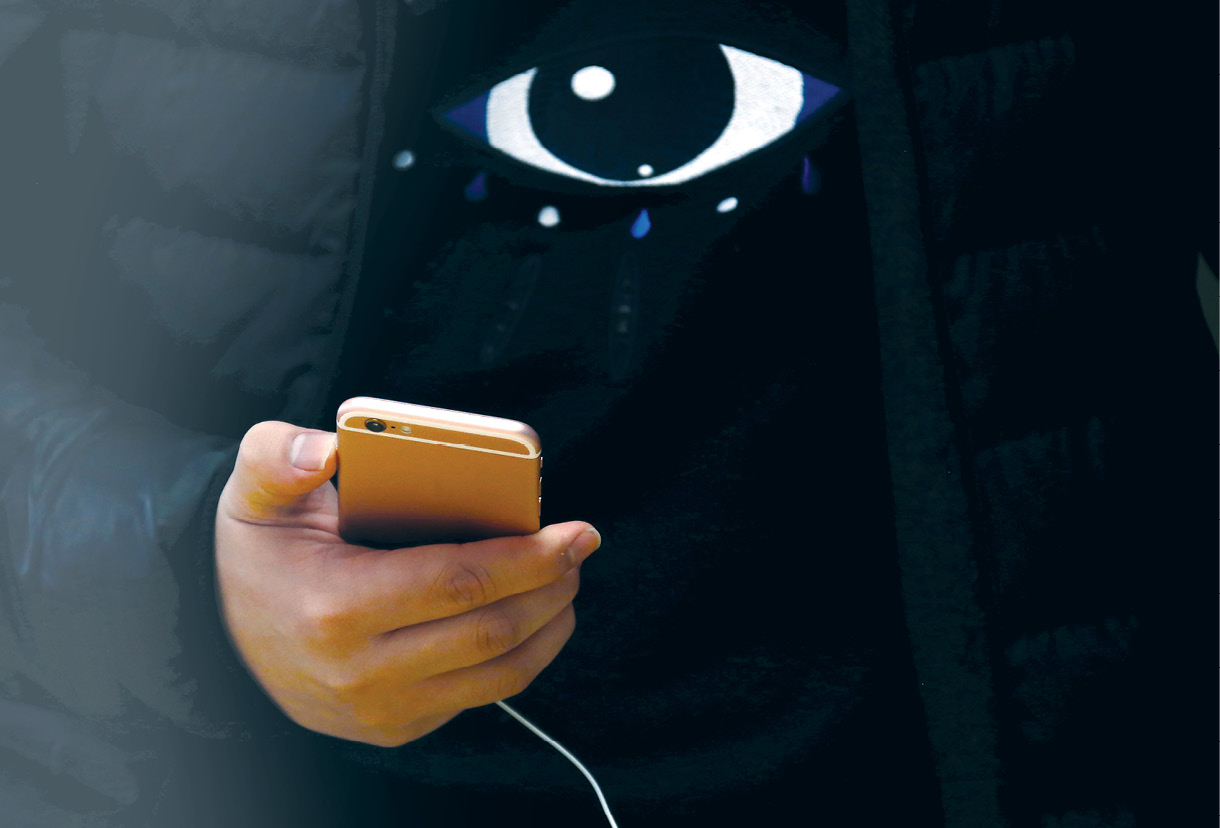

information is both the key to freedom and a potential threat to its survival.
Protecting human rights has become more complicated. Personal data is vulnerable to cyber-security threats, and free expression may be compromised by information controls imposed to achieve social, political or economic ends. Munk School scholars, led by the Citizen Lab, are building a multidisciplinary community of research to support sound policy-making and heightened vigilance in a digital landscape that changes daily.
Education
In
Action
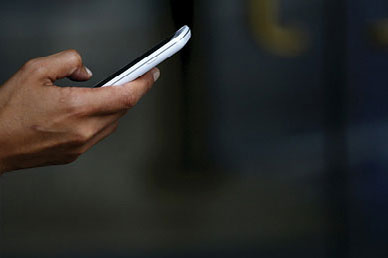
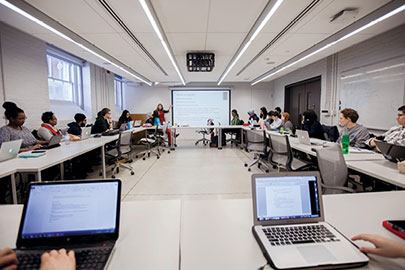
Message Received
Sexual violence is endemic in the Democratic Republic of the Congo (DRC), and victims – especially women and girls in rural areas – face daunting obstacles when they try to access the justice system. What can be done to ensure that they get the swift action and support they need, and that women generally feel a greater sense of security? This was the challenge presented to Munk One students in 2015–2016 through one of the five thematic labs that are core to the undergraduate program. Focusing on security, digital governance, health, the environment, and the gap between rich and poor, the labs help teams of students learn to conduct research with analytical rigour, gaining insights into complex problems. They then present potential solutions to a panel of experts in the hope of being able to pursue their ideas further at a symposium or by working with an international organization.In the case of the DRC security lab, the winning team proposed a solution with an innovative digital dimension: students designed a text messaging service that could connect rural victims of sexual violence with local paralegals to ensure they receive prompt help in accessing the justice system. This familiar mobile communications tool would also make it easier to track the progress of specific cases through the courts while also collecting generalized data.
Research
Leadership
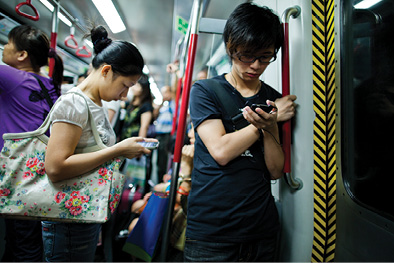
China’s Great Cannon
Over the past decade, apparent efforts by the Chinese government to interfere with the free flow of information beyond the country’s borders have prompted growing concern. The issue came to a head in 2015 when it was revealed that Chinese authorities had mounted an unprecedented cyber-attack on global Internet servers and specific websites using tool dubbed “the Great Cannon.”
The source of this revelation was a report by the Munk School’s Citizen Lab on research conducted in collaboration with the International Computer Science Institute at the University of California, Berkeley, and investigators at Princeton University. The team had uncovered compelling evidence that the Great Cannon was being used to launch large-scale assaults on multiple web servers, in a technique called distributed denial of service. Foreign web traffic intended for China’s largest search engine, Baidu, was being intercepted, injected with malicious code and redirected toward two main targets: the advocacy group GreatFire.org, whose servers help to circumvent Internet filtering in China, and GitHub, a popular online repository service for the massive code files assembled by web developers.
The Great Cannon report drew global attention by confirming China’s long-suspected involvement in systematic cyber-attacks – and by illuminating the groundbreaking work of the Citizen Lab, under the leadership of Prof. Ron Deibert, in assessing the impact of information controls and other cybersecurity challenges on human rights. The report received front-page coverage in the International New York Times and ultimately prompted more than 875 articles in media outlets with a combined audience of 477 million. Some of the major publications and news channels that covered the story included The Wall Street Journal, The Guardian, The Washington Post, Deutsche Welle, Bloomberg, Forbes, CNN, South China Morning Post, The Japan Times, Wired, Fast Company, China Digital Times and VICE’s Motherboard.
Rise of the Machines
Deterrence, the watchword of the Cold War era, must be rethought for the digital age. The danger posed by nuclear arms, while still real, has been superseded by the risk of cyber-attacks and other technologically driven threats with the potential to cripple the global economy. When policy-makers and commanders tasked with protecting nations face anonymous aggressors, often with hidden or ambiguous motives, who can disregard traditional boundaries and mount sophisticated assaults in cyberspace – the rules of engagement have clearly changed.
So too has research in this area, as understanding the impact of technology on global security increasingly requires skills from multiple disciplines. A perfect example is Prof. Jon Lindsay, who joined the Munk School this past year with a CV that includes a PhD in political science from the Massachusetts Institute of Technology, degrees in computer science from Stanford University, and service in the U.S. Navy. Over the past year he has continued his work with Prof. Erik Gartzke at the University of California, San Diego, and colleagues from several other institutions. Their multi-year project, funded by the U.S. Department of Defense, is aimed at developing a theory of “cross-domain deterrence,” in which multiple actors create a complex network of bargaining relationships – and failures – as they deploy new technological weapons to pursue political ends. Prof. Lindsay’s use of machine learning techniques to analyze the impact of technology on past crises has led to requests for briefings from various defense authorities, including the U.S. Joint Chiefs of Staff.
Korea’s Smart Sheriff
It was an innovation built on good intentions: “Smart Sheriff,” an app that would enable South Korean parents to remotely block potentially harmful content on their underage children’s mobile phones. Developed by the Korean Mobile Internet Business Association (MOIBA), Smart Sheriff was widely adopted after such surveillance tools became mandatory telecom service offerings in April 2015.
Three months later, what had seemed to be a source of protection proved to be quite the opposite. At the annual Summer Institute hosted by the Munk School’s Citizen Lab, which brought together 80 experts on Internet openness and rights from around the world, representatives of OpenNet Korea raised concerns about suspected security weaknesses in Smart Sheriff. A working group conducted a rigorous compliance audit of the app and concluded it left children vulnerable as their personal information was sent without encryption over the Internet. Moreover, weaknesses in authentication protocols made users unduly susceptible to hijacking and risked a large-scale data compromise.
In September these findings were released in a report titled “Are the Kids Alright?” Following an onslaught of media coverage – nearly 900 articles reaching a global audience of 115 million – MOIBA claimed to have “immediately taken action” in addressing the security weaknesses of Smart Sheriff. However, a second audit by Citizen Lab members found many unresolved issues that still put children and their parents at serious risk. MOIBA then announced that as of Nov. 1, telecom carriers would begin providing free Internet filtering software. Smart Sheriff was being withdrawn from the market – but only because it could not compete with apps offered at no charge. There was no mention of any information security or privacy issues.
Public
Engagement
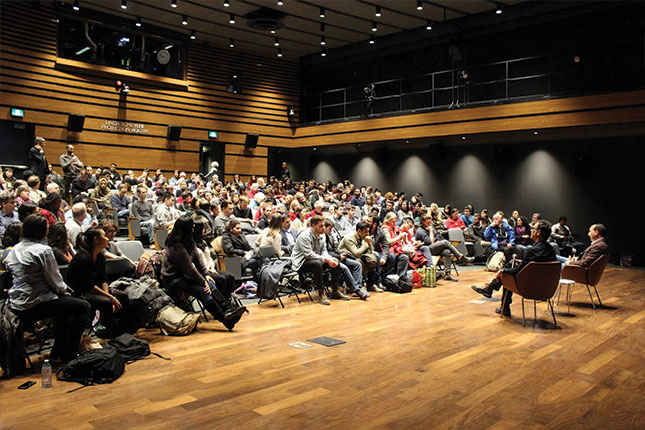
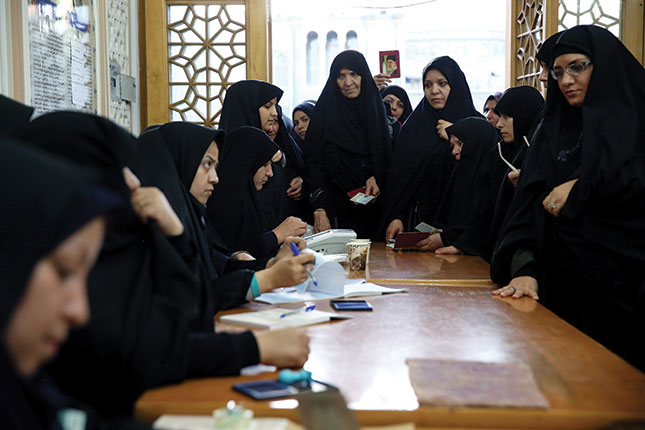
Citizenfour Speaks
In February 2016, the Munk School’s Centre for the Study of the United States co-hosted a screening of Citizenfour, the Academy Award–winning documentary about the world’s best-known whistleblower, Edward Snowden. In a subsequent Q&A session before an audience of about 250 people, Prof. Ron Deibert, Director of the Citizen Lab, spoke to Snowden’s lawyer, Ben Wizner, about the many global security and human rights questions swirling around the top-secret government files leaked by the former CIA analyst. A few weeks later, Prof. Deibert had the opportunity to speak at length with Snowden (over a video link) as part of a live panel discussion and webcast presented at RightsCon, the annual conference focused on issues at the intersection of technology and human rights.
Digital Public Square
When citizens cannot safely meet in public to exchange news and views, the Internet offers alternative spaces where freedom of speech can flourish. This is the inspiration behind the Digital Public Square, launched by the Munk School three years ago under the leadership of Prof. Janice Stein, and now embraced by millions of users worldwide who appreciate having a protected environment where they can express opinions, debate issues and discuss possible paths to a better future.
The Digital Public Square grew out of an earlier project, “Global Dialogue on the Future of Iran,” initiated in May 2013. Taking advantage of software designed to circumvent censorship, the project enabled Iranian citizens to communicate freely through various online events and platforms. Although the government in Tehran ultimately succeeded in blocking these interactions, in January 2015 Global Affairs Canada provided $5.5 million in new funding to help the Digital Public Square expand its Iranian programming while also extending its reach to the broader Middle East and ultimately to users worldwide.
The success of the program is dramatically evident from the sheer volume of traffic it has attracted. In the past year, platforms created to monitor Iran’s political process were accessed more than 16 million times, providing nearly 2 million Iranians with uncensored coverage during the lead-up to parliamentary elections in February 2016. An online space called aswat.me, focusing on women’s rights in the Middle East and North Africa, collected more than 30,000 responses to an anonymous survey on social and political concerns; it also posts interviews with women who have escaped the control of Islamic State militants. And a digital hygiene tool that helps people stay unidentified online has been widely used by people around the world.
These high levels of engagement attest to the need, in closed and repressive societies, for spaces where people can share their stories, contribute to discussions and build communities grounded in openness, respect – and hope. The Digital Public Square is a shining example of how tenacious research and innovative thinking can converge to yield meaningful action.

